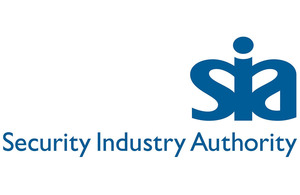Environment Agency delivers major fisheries improvements funded by rod licence income
Today (12 January), the Environment Agency has published its Annual Fisheries Report revealing that over 1 million licence sales in 2020/21 funded improvements to the environment and fish habitats.
Over 1 million (1,090,068) fishing licences were sold to anglers between 1 April 2020 and 31 March 2021, generating £24,583,342 in income which has been reinvested into incident response, enforcement action and habitat improvements to support fisheries.
This income was further boosted by government funding and partner contributions, allowing the EA to deliver a major investment of £33 million through the Water Environment Improvement Fund (WEIF) to enhance the environment which fish stocks rely on to survive.
The report outlines how licence income supported fish restocking across the country which helps fish populations to recover following environmental incidents. Almost 500,000 coarse fish were stocked into rivers and still waters around the country, including over 130,000 barbel and almost 82,000 roach.
Licence sales also helped to fund 45 fish pass projects, opening up rivers to encourage the free movement of fish. Installing structures to bypass obstacles, such as weirs, allows fish to access new feeding areas and breeding ground to spawn successfully.
As inclusivity is a key pillar of the EA’s National Angling Strategy, the additional income from increased licence sales has been used to benefit the growing angling community and make the sport accessible for all. This includes the construction of facilities for less able anglers such as accessible toilets, safer platforms for wheelchair users and improved access to fisheries sites.
The EA worked in collaboration with partners, such as the Angling Trust, the Angling Trades Association and the Canal and Rivers Trust, to encourage more people to give angling a go. The relaunch of the Take a Friend Fishing initiative (TAFF) encouraged over 3,000 licence holders to take a friend fishing. Licence income was also used to support the training of new coaches and facilitate 495 participation events which saw around 5,000 people try fishing for the first time
Kevin Austin, Deputy Director for Fisheries at the Environment Agency, said:
It’s fantastic to see that over a million people went fishing last year and are recognising the benefits of this sport. The Environment Agency uses licence income to maintain, improve and develop fisheries across the country.
Whether it’s preventing illegal fishing and poaching, responding to incidents or safeguarding habitats – all licence income is invested directly back into our fisheries and angling services.
When you buy a licence you help us continue this vital work and create new opportunities for anglers.
During 2020/21, fisheries licence income funded:
- 119 fish stock surveys
- 17,106 fishing licence checks carried out by Environment Agency enforcement teams with the support of the Angling Trust Voluntary Bailiff Service (VBS). 867 offence reports were issued, and 340 anglers were prosecuted for fishing without a licence
- EA response to 391 incidents involving dead or dying fish, including reports of pollution and fish disease
- Improvements to fish habitats on 575km of rivers in England
- Supply and stocking of almost 500,000 coarse fish including barbel, roach, bream, tench and grayling
- Initiatives to provides facilities to anglers, encourage more people into the sport and make fishing more accessible for all
- Work with over 1,200 project partners to improve fisheries and angling facilities
- The Angling Improvement Fund (AIF) managed by the Angling Trust to protect fisheries from predators, such as cormorants and otters
- Improvements to over 153 hectares of still water fisheries
- Monitoring, research, and development work to deliver sustainable fisheries management
- Vital work at the National fisheries laboratory at Brampton, to check the health of fish stocks and minimise the risk of spreading fish diseases
The EA has created a digital fishing licence, which allows anglers to purchase and display licences on their smartphones. This not only simplifies the process for anglers but has reduced spend on producing licences, allowing even more income to be spent on improving angling services.
You must purchase a fishing licence to fish in England and Wales. All income from fishing licence sales is reinvested to support the vital work of the Environment Agency to improve and develop fisheries across the country. Annual licences start from £30 and can be purchased online or by phone, more information can be found here.

